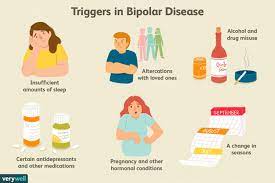Vital Importance of Water
Highlight the crucial role of water in sustaining life, maintaining overall health, and supporting various bodily functions.
The Significance of Hydration
Introduce the concept of hydration as a fundamental aspect of well-being, emphasizing its impact on physical and mental performance.
Body Water Percentage
Explain the significant percentage of water in the human body, with variations based on age, gender, and overall health.
Compartments of Body Water
Discuss the distribution of body water in various compartments, including intracellular and extracellular fluid, and its role in maintaining balance.
Temperature Regulation
Highlight how water plays a crucial role in regulating body temperature through processes like sweating and evaporative cooling.
Nutrient Transportation
Explain how water facilitates the transportation of nutrients, hormones, and other essential substances throughout the body.
Digestive Enzyme Activation
Discuss the activation of digestive enzymes in the presence of water, aiding in the breakdown of food for absorption.
Hydration and Bowel Regularity
Explore the connection between proper hydration and bowel regularity, emphasizing the prevention of constipation.
Fluid Production
Explain the role of water in the production of synovial fluid, which lubricates joints and contributes to smooth joint movement.
Maintaining Joint Health
Highlight the importance of adequate hydration in maintaining joint health and preventing conditions like arthritis.
Skin Hydration and Elasticity
Discuss how water contributes to skin hydration, preserving elasticity and promoting a healthy complexion.
Water’s Role in Wound Healing
Explore the connection between hydration and efficient wound healing, emphasizing the role of water in tissue repair.
Impact on Cognitive Performance
Examine the impact of hydration on cognitive functions such as concentration, alertness, and overall mental performance.
Dehydration and Cognitive Impairment
Discuss the potential cognitive impairment associated with dehydration, emphasizing the importance of staying adequately hydrated.
Individual Hydration Needs
Provide general guidelines on daily water intake, taking into account factors like age, weight, physical activity, and climate.
Listening to Thirst Cues
Encourage individuals to listen to their body’s thirst cues as a reliable indicator of hydration needs.
Water from Beverages
Discuss various sources of hydration, including water from beverages such as water itself, herbal teas, and infused water.
Hydration from Food
Highlight the contribution of hydrating foods, such as fruits and vegetables, to overall fluid intake.
Climate and Physical Activity
Discuss how environmental factors, including climate and physical activity, can influence hydration needs and strategies.
Age and Health Conditions
Explore how age and specific health conditions may impact hydration requirements, emphasizing tailored approaches for different populations.
Recognizing Dehydration
Educate readers on common signs of dehydration, including thirst, dark urine, dry skin, and fatigue.
Importance of Timely Rehydration
Emphasize the importance of timely rehydration once signs of dehydration are observed, preventing further complications.
Athletes and Hydration
Provide hydration tips for athletes, stressing the importance of pre-exercise, during exercise, and post-exercise fluid intake.
Hydration for Desk Workers
Offer recommendations for individuals with sedentary lifestyles, emphasizing the need for mindful hydration despite a less active routine.
Conclusion
Summarize the article’s key points, reinforcing the idea that water is a fundamental lifesource essential for overall health and well-being.End with a call to action, encouraging readers to prioritize hydration as a daily commitment for optimal health.


